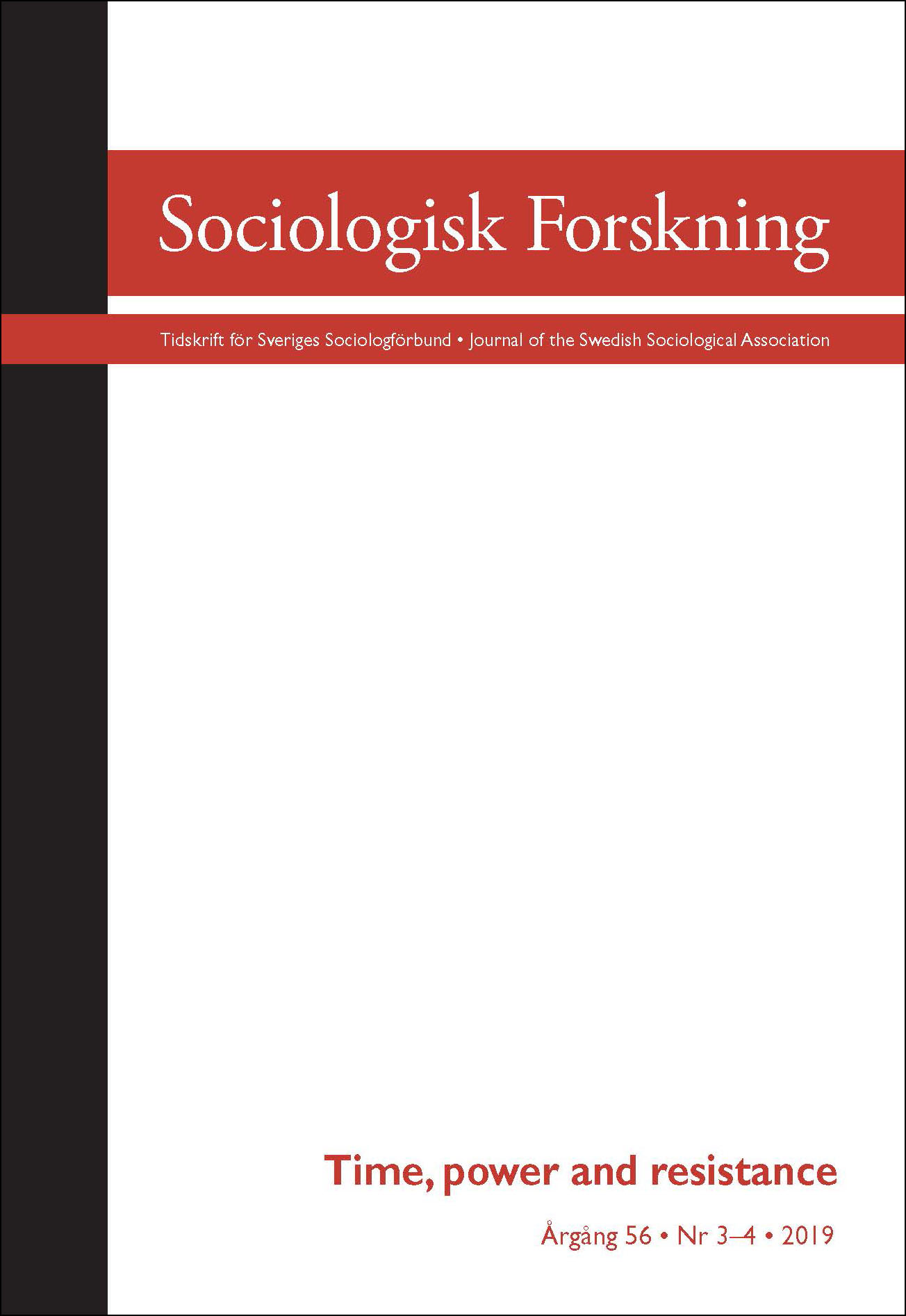Digital media and the acceleration of resistance
Findings from the 2010/11 Tunisian revolution
DOI:
https://doi.org/10.37062/sf.56.18810Nyckelord:
Tunisian Revolution, Arab Spring, Resistance, Acceleration, Grounded TheoryAbstract
This article is concerned with providing empirical evidence relating to the use of digital media and resistance during the so-called Arab Spring events. These events have been widely acknowledged as a case where digital media significantly contributed to the successful attainment of movements’ objectives. The use of such innovative technologies has been tied to the characteristics and, ultimately, the ends of these movements, with their ‘youthful’, ‘leaderless’ and ‘spontaneous’ nature reflecting Western-orientated practices. However, the analysis presented here utilises interview data obtained from participants in the 2010/11 Tunisian Revolution, detailing their perspectives and explanations of digital media’s role. The data and analysis show that while such technologies were a useful tool, their prominence has been exaggerated and offers a flawed understanding of the events. Rather, the social change being pursued during the Tunisian revolution was profound. Therefore, the deeper implications of the common emphasis on digital media in the literature is explored, with Rosa’s (2015) assessment of social acceleration being informative for elaborating on the nuances of these technologies’ use during the 2010/11 events.
Downloads
Publicerad
Referera så här
Nummer
Sektion
Licens
Allt material i Sociologisk Forskning publiceras med omedelbar öppen tillgång (open access), under Creative Commons-licensen CC BY-NC-ND 4.0.
Allt innehåll i tidskriften är fritt tillgängligt utan kostnad och får för icke-kommersiella syften fritt läsas, laddas ned, kopieras, delas, skrivas ut och länkas. Innehållet får dock inte ändras. När innehållet används måste författare och källa anges. Upphovsrätten till innehållet tillhör respektive författare. Inga publiceringsavgifter tas ut.





